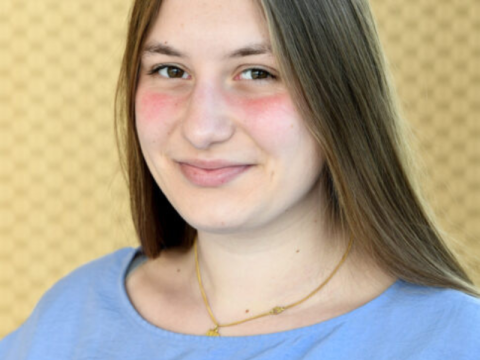My Experience at Feminist Camp NYC
The night before I left for Feminist Camp in New York City, I screamed myself hoarse at Taylor Swift’s Eras Tour in Chicago. Stumbling out of the stadium, I slept for a couple of hours and boarded a 5 AM flight to New York. Bleary-eyed and with no voice, I landed, making it just in time for the opening meeting of Feminist Camp. I introduced myself to everyone in a crackling half-voice, and for the rest of the week, every conversation began with me explaining my lack of voice. The rest of the day was a whirlwind of experiences, meeting brilliant women in various different vocations and getting to know all of the lovely people who attended Feminist Camp with me. One of the other attendants, Jakyra, was studying English and Education, just like me. We spent ages discussing teaching, our fears about becoming teachers, and all the things we were excited to do once we were in the classroom. The night ended with an incredible talk with the artist Wangechi Mutu at the Ford Foundation about her life and her artistic process. I fell into bed that night with a huge grin on my face, my mind whirling with everything I had learned.
The next day, we took a walking tour of the Hasidic community in Williamsburg, led by Frieda Vizel. This was one of the most eye-opening and incredible experiences of my time at Feminist Camp. The community is extremely gender-segregated and traditional, yet Frieda told us to keep our minds open, and so we did. I learned so much about Hasidic culture and how the community is extremely structured around children and education. There are so many schools in the community, and each school has buses that take children directly to their houses. Frieda told us that it is nearly impossible to drive in the area at the end of the school day because of how many buses there are blocking the road. This tour encouraged me to expand my notions of feminism and my initial skepticism about the culture of the Hasidic communities in New York.
The rest of my time at Feminist Camp continued in the same fashion, learning constantly and expanding the possibilities of feminism and activism. We met with so many incredible, fascinating people, including Lucia Brown of Feminist Press and Fikayo Walker of Pregnancy Justice. During our Reproductive Health Day, we got to learn about how abortions are performed and even got to practice performing abortions on papayas. We also met with Anabel Rivera, a doula for Ancient Song Doula Services. She was the kind of speaker that left everyone with tears in their eyes and hearts full of righteous anger and yet also incredible kindness.
On our closing day, we visited multiple museums, which made the art history nerd in me so happy. We went to the Whitney Museum of Art to see Jaune Quick-to-See Smith’s exhibit, an incredibly powerful show about Indigenous culture, activism, memory, and grief. Later in the day, two other campers and I went to see a collection of Bisa Butler’s newest work at the Jeffrey Deitch Gallery. I have followed Bisa Butler’s work for years, and I was so happy to be able to see her brilliant work in person. Feminist Camp opened my eyes to the possibilities of feminism, granted me access to incredible people and places, and left me with long-lasting friendships and connections.

